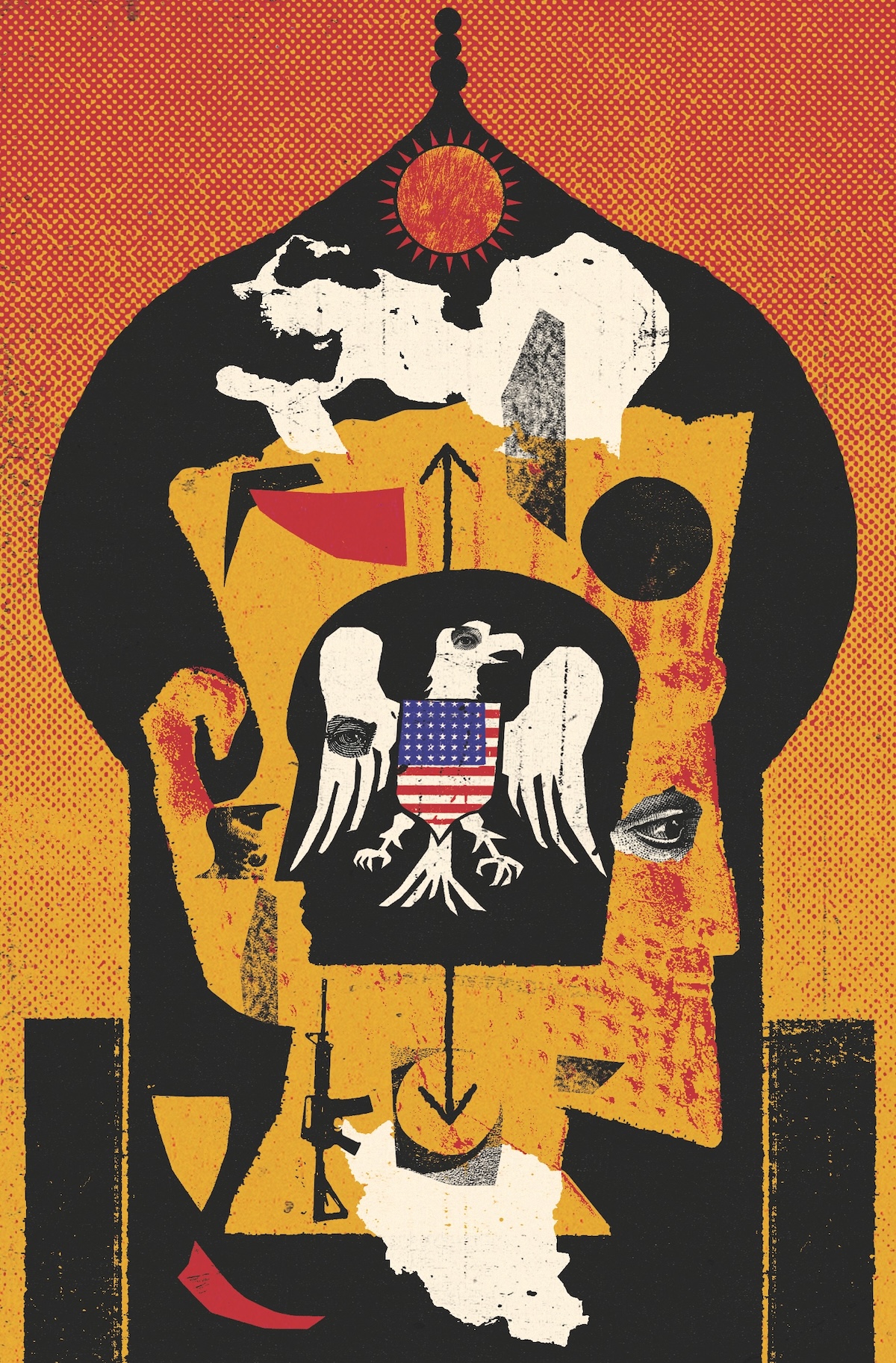How Iran Won the West
What explains the Iranian state’s remarkable soft power? The answer lies in its rich – and often romanticised – history.

Few events have symbolised the strength of Iranian soft power quite as effectively as an activist in Chicago last April urging his attentive American audience of ‘trainee protesters’ to chant ‘marg bar Emrika’ (‘death to America’). The bizarreness of the episode, footage of which was widely shared on social media, was made all the more acute by the dawning realisation that the chanting participants had little idea what they were being taught. There seemed at that moment to be few limits to the reach of Iranian soft power, as Ayatollah Khamenei, leader of the Islamic Republic of Iran, thanked students on Western campuses for their ‘support’.
There can be little doubt that the devastating war in Gaza has been a (modest) boon to the image of the Iranian state abroad, even if it has failed to galvanise its own population in support of the Palestinian cause. Most Iranians, drowning in an ocean of domestic problems, are bewildered by the apparent appeal of the Islamic Republic beyond its borders.
